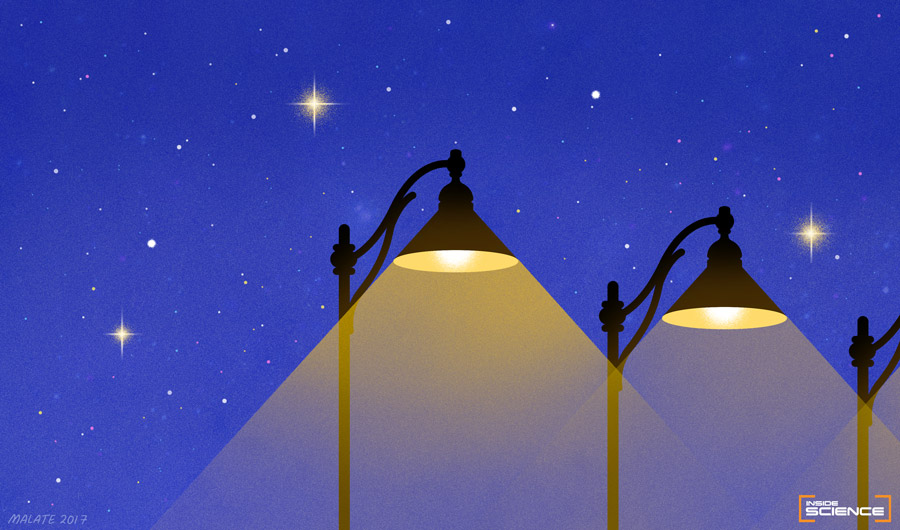Our home galaxy, the Milky Way — that iconic stream of stars coursing across the night sky — cannot be seen by one-third of humanity and 80 percent of Americans. As the artificial glow from towns and cities increases every year, and starry nights become unfamiliar to many, astronomers and dark-sky advocates are pushing to reduce light pollution — starting with changes to outdoor lighting.
The American Astronomical Society passed a resolution at their annual meeting in Grapevine, Texas this month, “affirming that access to a dark night sky is a universal human right, making quality outdoor lighting a worldwide imperative.”
The organization also endorsed a set of recommendations for outdoor lighting. In short, “shield the light, dim it, and use redder, warmer colors,” said Lori Allen, director of the Kitt Peak National Observatory in Arizona… Read more from InsideScience.org

